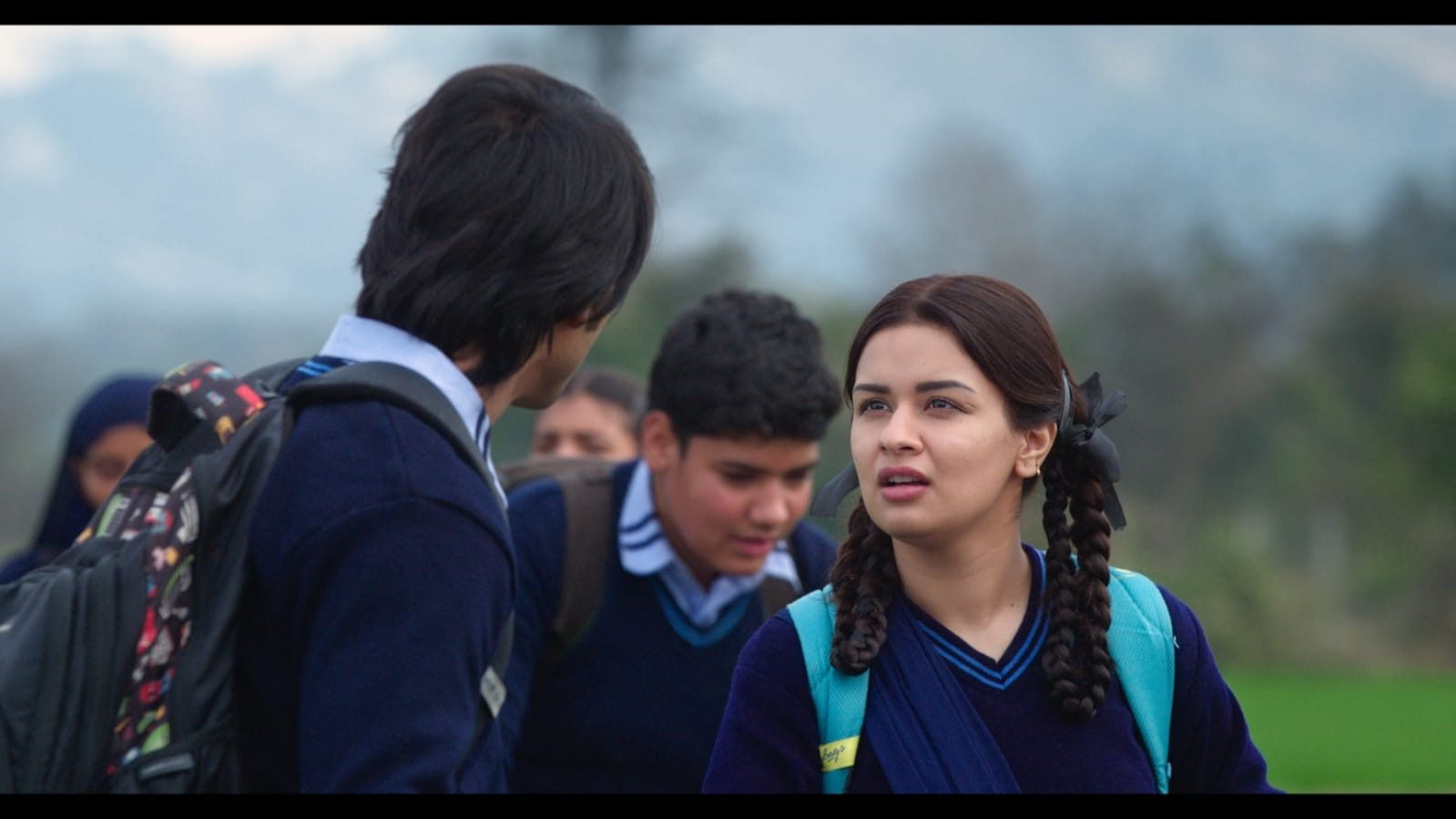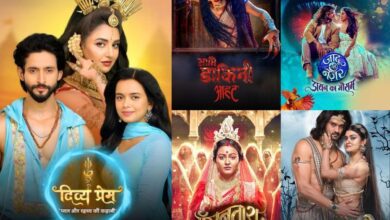Love in Vietnam Review – When Love Becomes Memory and Memory Becomes Love

Cinema, at its most affecting, isn’t about spectacle but about emotion. Love in Vietnam, directed by Rahhat Shah Kazmi, is one such tender, aching reminder. It isn’t content with merely narrating a love story; it dares to ask what happens when love is not about possession but about remembrance, when it’s less about being someone’s first love and more about becoming their last.
The Story
At its core, Love in Vietnam is a tale of three lives—Manav (Shantanu Maheshwari), Simmi (Avneet Kaur), and Lin (Kha Ngan). Childhood sweethearts Manav and Simmi share an innocence that’s so authentic it feels lived-in. Life, however, takes Manav away to Vietnam under the watchful eye of his uncle (Raj Babbar). There, he chances upon a photograph of Lin, and in that fragile, fleeting moment, falls in love with the very idea of her.
Is Lin real? Is she a dream? The film doesn’t hurry to answer. Instead, it allows Manav’s yearning to become our own. As he oscillates between the comfort of Simmi and the enigma of Lin, the narrative transforms into a meditation on longing itself.
What Works
Rahhat Kazmi stages his story with the kind of sincerity rarely seen in Hindi romances today. There is none of the frivolity or gimmickry that often substitutes for emotion. Instead, we get silences, glances, and pauses—cinematic punctuation marks that speak louder than words.
A scene where Manav and Lin slip into an impromptu dance step while walking along the lake is sheer magic—life asserting itself in the gentlest of gestures.
When Simmi, devastated by Manav’s brokenness, takes him away in silence, her pain becomes the audience’s.
A Vietnamese woman asks, “Why are you looking for her?” Manav’s simple answer—“Because I love her”—lands like a quiet thunderbolt.
The cinematography lingers lovingly over Vietnam’s lakes, alleys, and marketplaces, turning the country into more than a backdrop—it becomes a character, a witness to a love story that is both fragile and resilient. The music, meanwhile, doesn’t just accompany the film; it breathes with it. Jeena Nahi devastates, Pehli Nazar rekindles forgotten stirrings, I’m Ready delights with its celebratory warmth, and Bade Din Hue soothes like a familiar caress.
Performances
Shantanu Maheshwari is a revelation. His performance is all restraint and internalization—he makes you feel Manav’s yearning without spelling it out. In a role that could have easily tipped into melodrama, he opts for truth.
Avneet Kaur explodes in the second half like an emotional storm. Her fragility, her compassion, and her quiet heartbreak make her the film’s soul.
Kha Ngan is luminous, enigmatic, and almost otherworldly. Her presence adds mystery and melancholy in equal measure.
The veterans—Raj Babbar, Gulshan Grover, Farida Jalal—add gravitas, grounding the film with maturity and lived experience.
Weaknesses
Not everything is seamless. The first act rushes too quickly, as though eager to set up the Vietnam arc. Some dialogues sound overly explanatory, robbing scenes of their natural rhythm. A few choreographed moments, too, lack finesse. But these are quibbles in a film that otherwise holds you in its emotional grip.
The Bigger Picture
In an era where “romance” in Hindi cinema often comes diluted—either served as frothy comedy or packaged as superficial spectacle—Love in Vietnam feels like an antidote. It harks back to a time when filmmakers like Mahesh Bhatt, in his Arth and Saaraansh days, used love stories to explore deeper truths about life and longing.
Rahhat Kazmi, adapting a Turkish novel, reimagines it as an Indo-Vietnamese tapestry. The film, in doing so, transcends borders not just geographically but emotionally. It suggests that love, memory, and loss are universal experiences that need no translation.
Verdict
Love in Vietnam is not a flawless film—but it is an honest one. Its imperfections don’t diminish its impact; if anything, they make it more human. It’s rare today to come across a Hindi film that doesn’t scream for your attention but quietly, patiently earns it.
This is a film about memory, about loss, about the kind of love that doesn’t always end in union but still defines a life. For those who have ever loved and lost—or even for those still searching—it will leave behind an ache, and maybe, just maybe, a little hope.
Rating: 4/5
A haunting, heartfelt romance that makes you believe once again that Hindi cinema still has room for sincerity”
#filmymantra #bollywood



